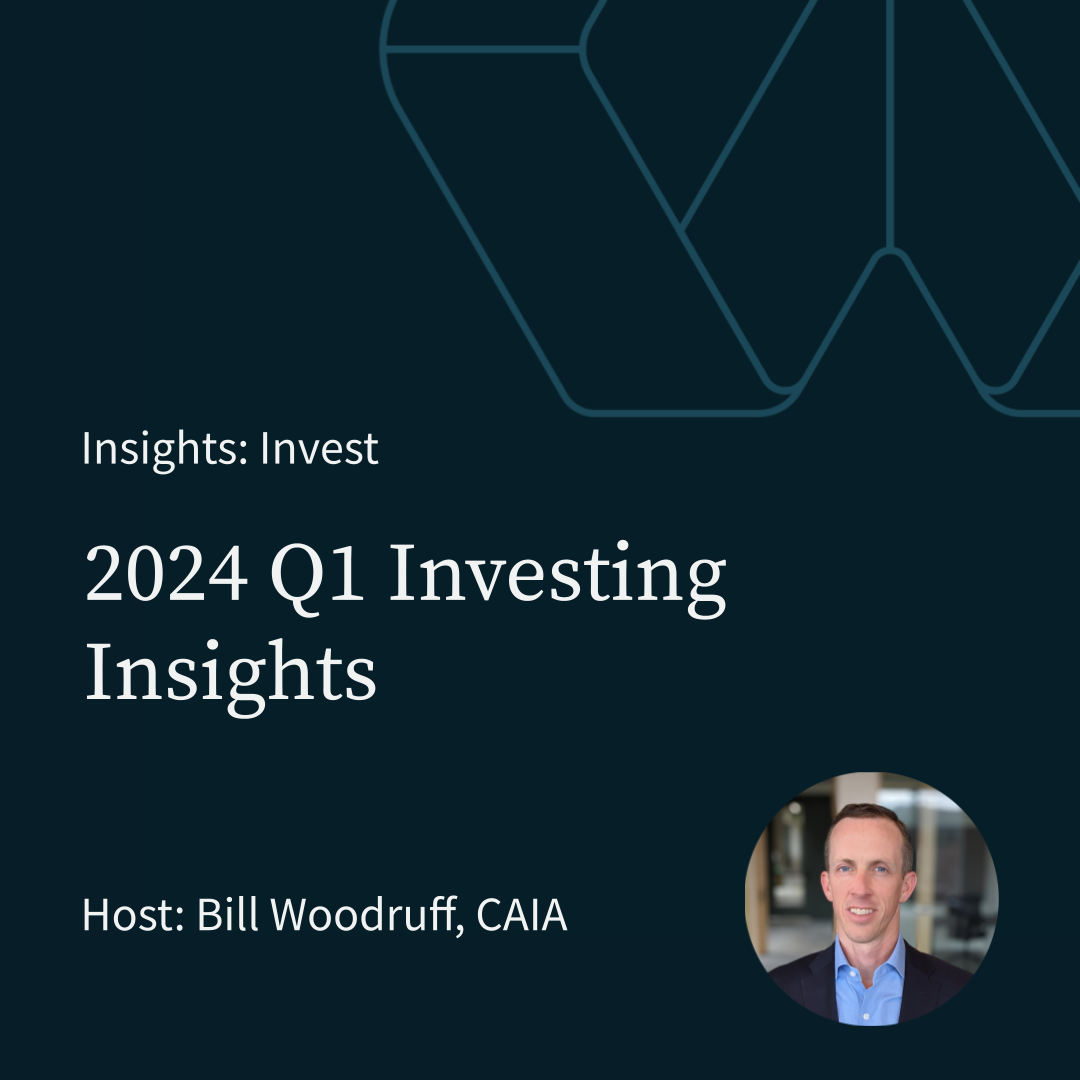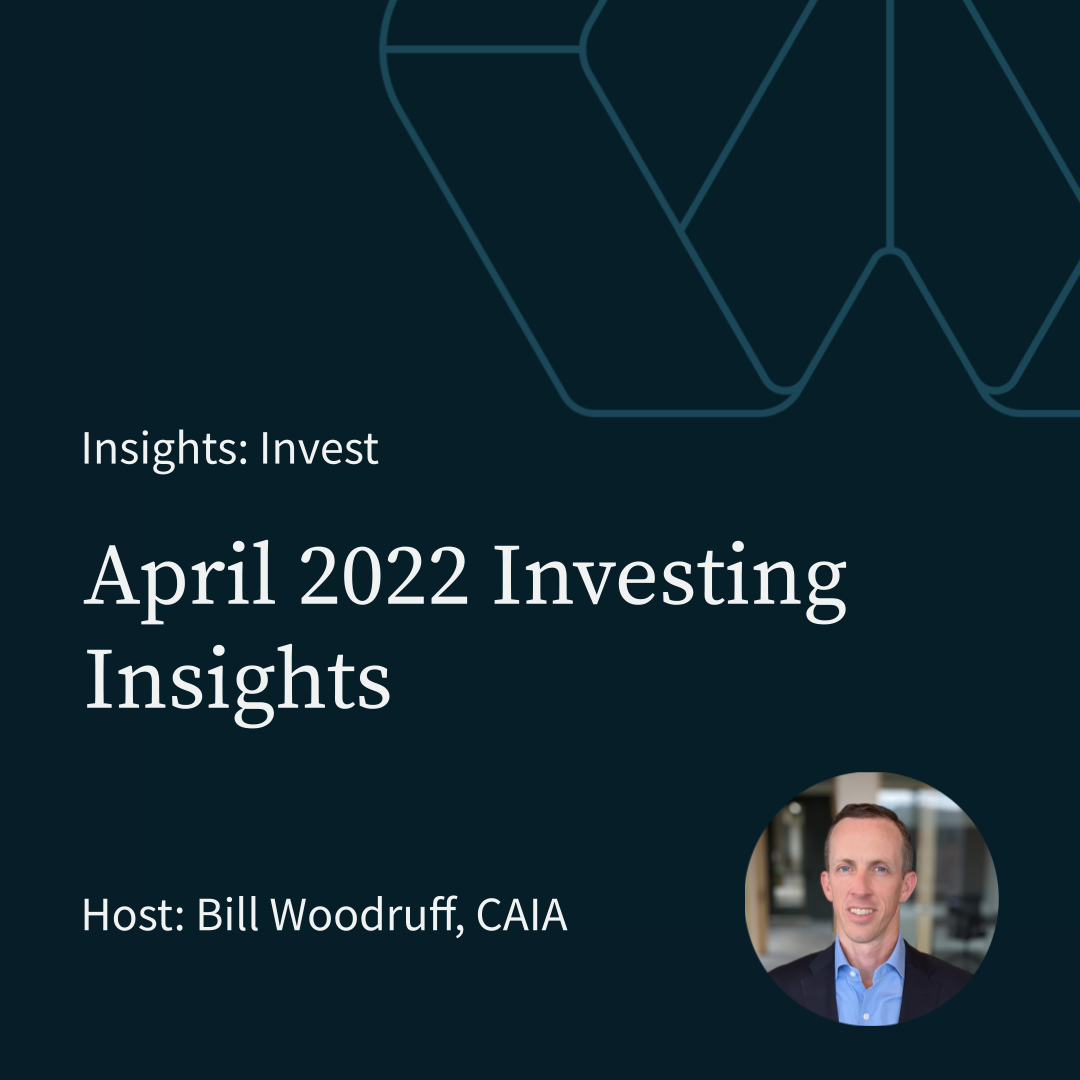Are You Paying Too Much For Investment Advice?
Paying for advice can add value, but only under a certain amount. In this post, Bill covers the impact of fees and how the value to the investor diminishes as they increase.
0:06 Hi, my name is Bill Woodruff. I'm founder Chief Investment Officer at WealthFactor. Today I want to share with you a diagram I put together that shares my view of the relationship between investment advice, costs, fees, expenses, etc, and the value that it provides to the end investor.
0:26 Just to give you a sense for what this is showing, on the y axis here, up and down, we have the amount of value added or potentially detracted with the center line being no value, or net neutral. And then on the bottom here, these t his is the amount of fee and so the far left side of the x axis we have zero fee and then out in increments of .5%, out to 1.5%.
0:53 As the graph suggests, there's benefits associated investment advice you know, the biggest one is emotions. tend to detract from investment decision making. If you're making decisions and with your own money, that can be challenging, the biggest mistake the average investor makes is buying when they're comfortable, which is often times after things have gone up, or selling after things have gone down or are seemingly very scary. An investment professional doing their job, can really help avoid some of these major mistakes.
1:26 Second, is the investment work, there's a benefit associated with not doing that, there's the case to be made that certain efficiencies can be done by building portfolios, with tools and with scale, and then things like rebalancing may add value over time.
1:46 Another element here that perhaps isn't focused on by the investment community, but it's absolutely an opportunity for investment advice to add value is tax optimization. So something the average investor might be more of an afterthought for.
2:02 And then lastly, there's benefits associated with just having a service provider doing administrative work and or reporting work on an overall portfolio or investment basis.
2:15 As you can see, and as this graph suggests, at some point the benefits peak, and the amount of value starts to decline. I believe that high fees force increased risk taking from an investment perspective. So as an investment service, and its underlying expenses and component parts, those fees increase, the overall portfolio has to become more risky to offset those fees. And that oftentimes negates and then potentially completely eliminates the potential benefits and ultimately will lead to a reduced probability of a successful investment outcome.
About WealthFactor: A Lake Oswego based investment adviser and wealth manager serving local high net worth and ultra-high net worth investors. Founded on the idea that high fees force unnecessary risks when providing investment advice. By leveraging the investment methodologies of the largest passive and rules-based asset managers, WealthFactor seeks to pass on the benefits that efficiency provides through financial technology on to its clients. WealthFactor offers custom investment advice services conveniently through separately managed accounts in each investor’s name. For more information visit www.wealth-factor.com.
About Bill Woodruff: WealthFactor’s founder has been investing in publicly traded financial markets for over 20 years. His career includes founding an alternative investment manager, launching and managing a mutual fund and serving as a managing director of a publicly traded investment manager. With over a decade of experience serving high net worth investors Bill skillsets uniquely blend an understanding of investor needs with an extensive financial markets and investing background.










